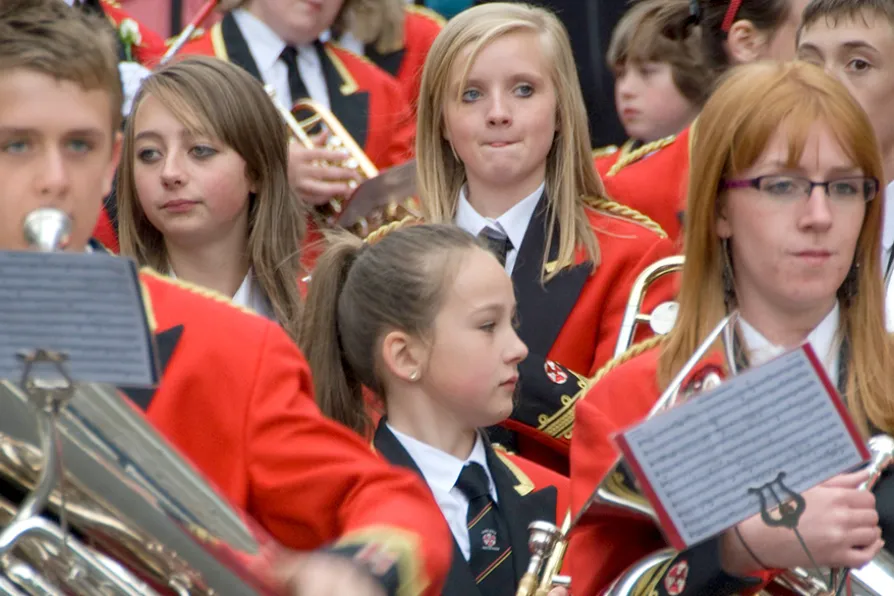Climate activist and writer JANE ROGERS introduces her new collection, Fire-ready, and examines the connection between life and fiction

 POINT OF entry: Delph Brass Band Contest- from brass banding to classical music?
[Bryan Ledgard/Creative Commons]
POINT OF entry: Delph Brass Band Contest- from brass banding to classical music?
[Bryan Ledgard/Creative Commons]
LAST week I was fortunate enough to attend the Association of British Orchestras’ annual conference, this time being hosted in Glasgow thanks to the Royal Scottish National Orchestra and the BBC Scottish Symphony Orchestra.
My own involvement was part hob-nobbing and shmoozing with other artists, in the hope I’d be able to find willing artists and groups to compose or work with, while also presenting a short talk on my work with Hebrides Ensemble and Drake Music Scotland.
For me, the conference was fascinating on two levels. First, I was curious to hear the concerns and thoughts of those who commission, prepare and organise concerts, much like the difference between a worker’s and a manager’s concerns are different — but in classical music, both sides of the coin want the artform to thrive.

JONATHAN TAYLOR appreciates how, for a black British musician, to walk onstage can be a rebellious act

ANN HENDERSON on the exciting programme planned for this summer’s festival in the Scottish capital

BEN LUNN alerts us to the creeping return of philanthropy and private patronage, and suggests alternative paths to explore











